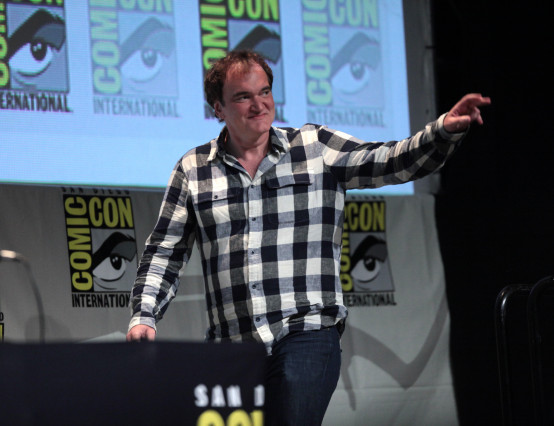Biopics are typically loved by Hollywood. The term “biopic” can be a little vague, considering it merely means “biographical picture.” If we go with the dictionary definition – “a film about the life of a real person” – then there are at least three films nominated in major categories at the Oscars this year. King Richard is nominated for best picture, while Will Smith is up for best actor for his role as the title character. Kristen Stewart is nominated for best actress for playing Princess Diana in Spencer, and Andrew Garfield is up for best ac tor for playing Jonathan Larson in tick, tick…BOOM! There’s also Belfast, which is autobiographical but technically still counts.
The 91st Academy Awards are an even better example, when Green Book, BlacKkKlansman, Bohemian Rhapsody, and Vice were all outright biographical dramas that were nominated for best picture, and both The Favourite and Roma were nominees that could fall under the umbrella of biographical pictures seeing as the former is about real people and the latter is a semi-autobiographical depiction of Alfonso Cuaron’s childhood. The big question, then, is why are so many biopics bad, and why do they so often garner acclaim despite their poor quality?
I won’t talk about this year’s nominees for a couple of reasons (the main one being that I haven’t seen all of them yet), so I’ll use the 91st Academy Awards as my main example. Of all the biopics nominated that year, maybe half of them are well-liked. Bohemian Rhapsody somehow won the most awards that year, including one for best editing – which people understandably mocked on Twitter, sharing a clip from the Freddie Mercury biopic that features some of the most jarring editing you’re ever likely to see in a film with such a large budget. The Rami Malek-led film has only a 60% score on Rotten Tomatoes and a 49/100 on Metacritic, which makes it one of the worst-reviewed films to be nominated for best picture.
Vice, which again was nominated in the same year, is only marginally better according to the same metrics, receiving a 65% score on Rotten Tomatoes and a 61/100 on Metacritic, again making it one of the worst-reviewed films to be nominated for best picture. (Bohemian Rhapsody and Vice received the two lowest Rotten Tomatoes scores for a best picture nominee since 1986).
Then there’s Green Book. It received better scores on review-aggregation sites, but then there’s the whole problem of it being a white saviour narrative where a bigot learns to stop being a bigot after being forced to spend time with a black man. It had a range of controversies around it, primarily the outdated (to put it generously) way it handles the themes surrounding race. Spike Lee almost walked out of the Oscars when it was announced as the winner. The film was written by Nick Vallelonga, the son of Frank “Tony Lip” Vallelonga (the white driver the film is based on, who was employed to escort concert pianist Dr Don Shirley around the deep south), and Nick Vallelonga saw controversy when Islamophobic tweets he’d made a few years earlier resurfaced. Nobody even mentioned Dr Don Shirley in the acceptance speech, and Shirley’s family claimed they were never consulted for the film and described it as a “symphony of lies.”
I’d like to note that I am not inherently averse to biopics, nor do I think that every single biopic ever released lacks any redeeming qualities. Mishima: A Life in Four Chapters (1985) is one of my favourite films of all time, actually, and that’s a biopic about the writer Yukio Mishima. What I am averse to is the sheer amount of formulaic, insipid, “feel-good” garbage biopics that get pumped out every single year, and the inexplicable acclaim they seem to receive (especially by awards ceremonies).
Marvel dominate the cinematic landscape in 2022, and there is always a lot of talk about how they pump out formulaic film after formulaic film and audiences repeatedly eat it up, but we should be having that conversation about biopics. It doesn’t even matter who they’re about. They always manage to be, in essence, the exact same film. They often begin with the earliest defining moment in the subject’s life, plod through the story of their life by showing us what they’re famous for alongside their most notable romance or friendship, and then end with the subject either in old age or with their death, and even if it ends with their death, they find some way to make the ending hopeful rather than tragic.
Let’s take two films released in 2014 as an example: The Imitation Game and The Theory of Everything. They start with the earliest defining moment in Alan Turing and Stephen Hawking’s lives, respectively. In The Imitation Game it’s Turing’s time at a boarding school in 1928 where he develops a friendship with Christopher Morcom, who introduces Turing to cryptography. Turing begins to fall in love with him, but Morcom dies from bovine tuberculosis. In The Theory of Everything it’s when Hawking attends a lecture on black holes and decides to write his thesis on them, but is soon diagnosed with motor neurone disease.
Both films then portray their respective genius’ road to success, balanced with their romantic lives. Hawking gets married and has children and later divorces and remarries. Turing was famously gay, but it’s apparently impossible to make a biopic without diverging from the formula, so Turing’s relationship with Joan Clarke, fellow Bletchley Park code-breaker, was highly fictionalised so that they could have something resembling a romantic relationship. (Andrew Hodges, an Alan Turing biographer, criticised the film for this.) Keira Knightley was cast as Joan Clarke too, of course, despite Clarke being described as “plain” by Turing’s only surviving niece and as “no glamourpuss” by Hodges, because hey, what use is a Hollywood biopic if you can’t have some sort of romance between a good-looking man and woman? Who cares if it’s a biopic about a gay man, right?
The way Alan Turing’s life ended was no fairy tale, but as mentioned earlier, you can’t make a biopic without a hopeful ending. That’s what they’re all about. The climax of The Imitation Game surprisingly (well, not really) features Turing looking happy. Joan Clarke visits him and comforts him, telling him he saved millions of lives, and he is then seen smiling at his work while alone. His suicide is only mentioned in the epilogue, which has scenes of Turing and his coworkers happily throwing papers into a fire and laughing together, and it concludes by reiterating that he saved millions of lives, and that his work led to the creation of computers. How lovely! The Theory of Everything is basically the same, featuring Stephen Hawking and his ex-wife Jane, now good friends, smiling at their children, followed by an epilogue that reiterates Hawking’s achievements while music plays.
It’s the same almost every single time. The formula for biopics is so insipid, so emotionally manipulative, so unimaginative and so painfully lacking in creativity that I’d rather watch 50 of the most formulaic comic book movies than a single one of the many biopics that Hollywood pumps out each year. Especially considering the former generally do not garner a whole lot of acclaim from critics and awards ceremonies, while biopics seem to be a shoo-in at awards shows regardless of how utterly bland they are.
Please, Hollywood: stop with the biographical dramas. I know creativity is sorely lacking in Hollywood cinema anyway, but it doesn’t take a genius to tell you that adapting somebody’s life into a film is quite possibly the single least creative thing you can do. Please. Make it stop.









0 Comments